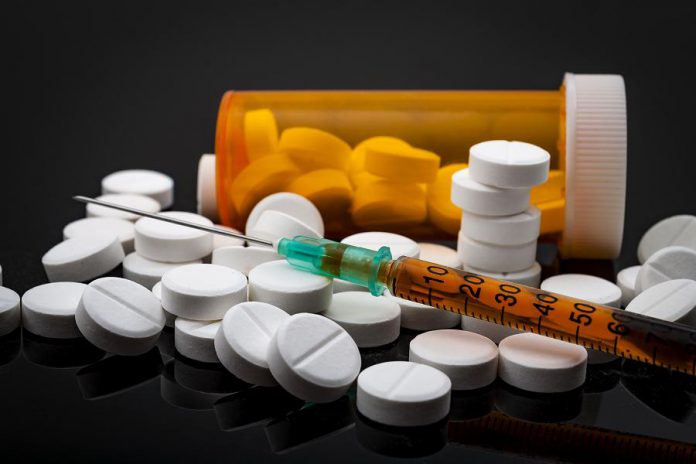The Haliburton, Kawartha, Pine Ridge (HKPR) District Health Unit has issued an opioid overdose alert for all areas within its jurisdiction, which includes the City of Kawartha Lakes, Northumberland County, and Haliburton County.
The alert, issued in consultation with local police services and emergency medical services, is based on recent reports of multiple overdoses and at least four suspected overdose deaths in the region, especially in Lindsay and Cobourg, the two largest urban areas in the region.
A media release from the health unit issued on Monday (February 28) states “Contributing factors for these local overdoses include people using alone or a potentially contaminated or poisoned drug supply that is leading to more severe overdose reactions.”
“Let’s remember these aren’t just statistics,” says Catherine MacDonald, a registered nurse and substances and harm reduction coordinator with the HKPR District Health Unit. “Real lives are at stake, since people who use drugs are fathers, mothers, brothers, sisters, sons, daughters, friends and loved ones.”
The HKPR District Health Unit’s alert follows a drug poisoning alert issued by Peterborough Public Health last Wednesday (February 23).
For anyone who uses drugs (or know someone who does), the health unit recommends:
- Test a small amount of drug before you use.
- Never use alone.
- If you are alone, call the National Overdose Response Service (NORS) virtual safe consumption at 1-888-668-NORS (6677), or use a buddy system and call a friend.
- Ensure that emergency services can be contacted in the event of an overdose.
- Avoid mixing your drugs.
- Keep a naloxone kit on hand. You can get a naloxone kit at most pharmacies and needle exchange sites.
Naloxone is an emergency medicine that temporarily reverses the effects of an opioid overdose until the victim can get to hospital for treatment. Naloxone is recommended to be used in all suspected drug overdoses, due to the possibility of opioid contamination or poisoning.
According to the health unit, local community partners are enhancing their naloxone distribution efforts in the wake of the alert. Free kits are also available for people who use opioids, as well as their family and friends, and can be picked up at health unit offices, local pharmacies, and other locations. Visit ontario.ca/page/where-get-free-naloxone-kit for where to get a free naloxone kit.
MacDonald also encourages people to intervene if they see someone who is overdosing. Call 9-1-1 and give the person naloxone. The Good Samaritan Drug Overdose Act protects anyone trying to help in an emergency from possible legal repercussions, and also protects people on the scene of an overdose from being charged for possessing or using drugs.
Signs of an overdose include very large or very small pupils, slow or no breathing, cold and clammy skin, blue or purple fingernails or lips, and deep snoring or gurgling sounds. Often in drug overdoses, the person’s body is very limp and it is difficult to wake them up.
Information on local opioid overdose incidents is available at the HKPR District Health Unit’s Opioid Overdose Report dashboard.
Residents of Kawartha Lakes, Northumberland, and Haliburton can use an online form to report overdoses and drug-related incidents anonymously. The information submitted through the form will assist the HKPR District Health Unit to better understand and respond to opioid use and overdose in the region.



























